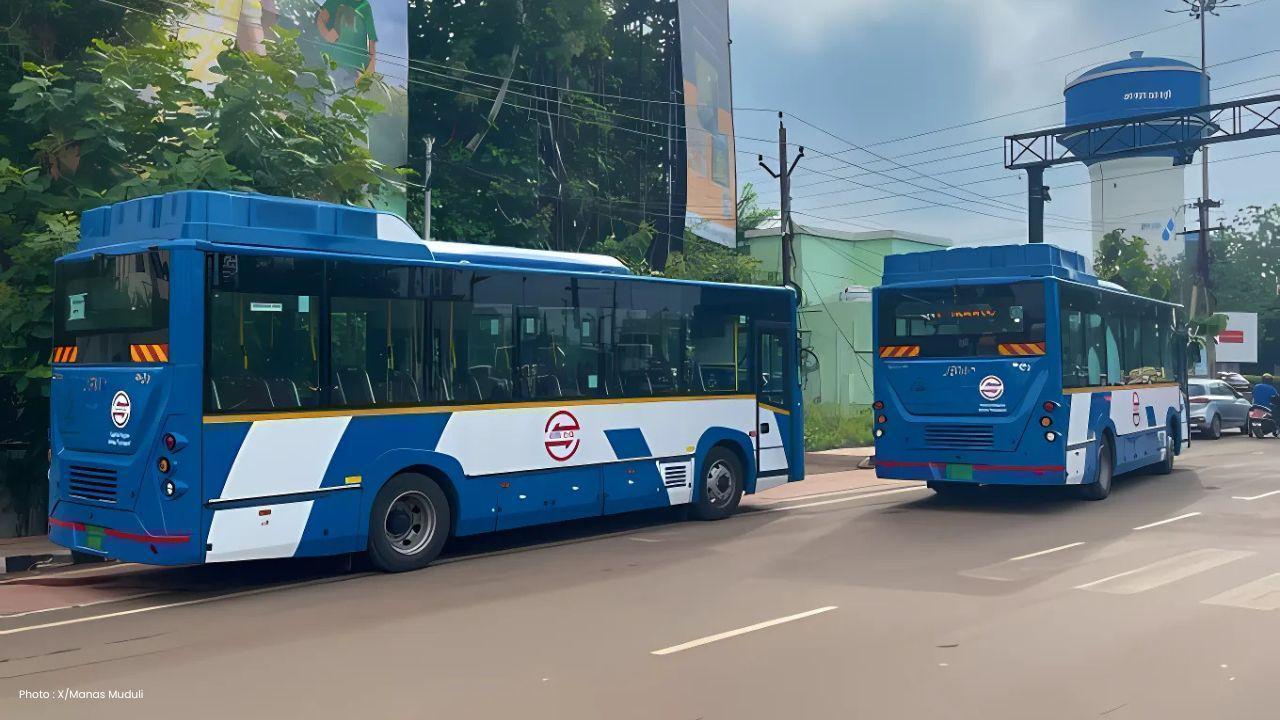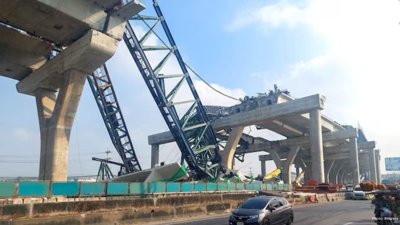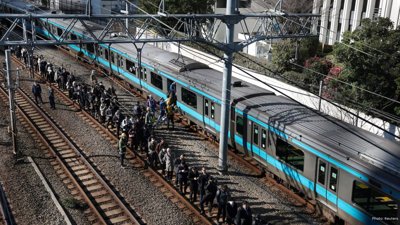
Post by : Avinab Raana
JBM Electric Vehicles and Al Habtoor Motors have struck a landmark agreement to introduce electric buses across the UAE, marking a major step forward in clean public transport for the region. Under the deal, Al Habtoor Motors becomes the exclusive importer and distributor of JBM's electric buses throughout the Emirates, and the partnership includes provision of charging infrastructure and leasing services, offering a full end-to-end solution for fleet operators. The initiative is explicitly aligned with the UAE’s Net Zero by 2050 goals, aiming to accelerate adoption of electric mobility in urban, intercity, school, airport, and staff transport segments.
JBM Electric Vehicles, a subsidiary of the larger JBM Auto group, is regarded as having one of the world’s more advanced integrated e-bus manufacturing capabilities. Its plants are capable of producing tens of thousands of electric buses annually, and the company claims its e-bus technologies are robust enough for UAE-style conditions: high heat, long duty cycles, and demanding service intervals. These buses will come equipped with advanced lithium-ion battery systems, durable safety features, and smart charging compatibility. In addition, Al Habtoor Motors’ strong local presence and after-sales expertise are expected to help with servicing, parts supply and ensuring operational reliability in harsh climatic conditions.
The launch ceremony featured senior leadership from both companies, each underlining the scale of the opportunity. JBM expects that over a decade this collaboration could help reduce CO₂ emissions by over 2.8 billion kilograms and save more than one billion liters of diesel fuel, while transporting over 1.6 billion passengers across various routes and services. For Al Habtoor Motors, the agreement strengthens its green mobility portfolio and positions the company as a major player in the clean-transport space, not just as a vehicle distributor but as a partner in sustainable infrastructure and operations.
Electric buses under this partnership are planned for diverse applications: city transit buses making frequent stops, school buses, staff shuttles, airport tarmac vehicles, intercity tourist-coaches, and short distance intercity mobility. The aim is to serve both public transport agencies and private operators, offering flexible leasing options that lower the entry barrier. Charging infrastructure is part of the package: smart chargers adapted to UAE’s environment, capable of withstanding high ambient temperatures and dust, will allow for reliable scheduling, quick turnaround, and minimized downtime.
This move reflects growing trends in the Gulf region toward fleet electrification, driven by government pledges, rising fuel costs, air-quality concerns, and the desire to reduce carbon footprints. Key GCC cities have already set ambitious targets for zero emissions in public transit, and this tie-up adds to momentum. What’s especially notable is the holistic approach combining vehicle manufacturing, charging networks, leasing and servicing, rather than just delivering buses without supporting systems. For operators, this reduces risk and improves feasibility.
Operational costs are expected to decline significantly with electric buses, thanks to lower fuel costs, fewer moving parts, and less maintenance relative to diesel equivalents. However upfront investment in charging infrastructure and battery technology remains high; long-term savings will depend on battery life, local electricity pricing, maintenance support, and regulatory incentives. The UAE’s power networks and utility tariffs will play a vital role in ensuring that electric buses are cost-competitive over their full lifecycle.
The environmental benefits are substantial: lower tailpipe emissions mean improved air quality in fast-growing urban areas; reduced reliance on fossil fuels ties into national climate pledges; and the reuse or recycling of batteries over time will likely become an important component of sustainability strategy. The project also holds promise for job creation in manufacturing, operations, maintenance, training, and charging-network deployment, in line with UAE’s push to build local capabilities in green tech and mobility.
For the region’s transport authorities and planners, this partnership acts as both proof-of-concept and a potential blueprint. Lessons in adapting systems to extreme heat, ensuring reliability under high duty cycles, integrating charging stations into urban infrastructure, and deploying fleet leasing options will be closely observed. If successful, this can catalyse similar agreements not just within UAE but across neighboring Gulf states.
In conclusion, the collaboration between JBM Electric Vehicles and Al Habtoor Motors represents more than the arrival of new electric buses; it signals a shift toward sustainable transit as an integrated ecosystem. With ambitious targets, environmental stakes, and technical challenges, success will depend on reliable infrastructure, stable policy support, and efficient operations. For commuters, urban planners, and clean-mobility advocates across the GCC, this initiative promises cleaner air, cost savings, and a tangible step toward future mobility provided all gears move in sync.
#trending #latest,#ElectricBuses #SustainableTransit #UAE #CleanMobility #NetZero2050 #JBM #AlHabtoor #ZeroEmissionTransport #PublicTransportRevolution #GreenFleet










Advances in Aerospace Technology and Commercial Aviation Recovery
Insights into breakthrough aerospace technologies and commercial aviation’s recovery amid 2025 chall

Defense Modernization and Strategic Spending Trends
Explore key trends in global defense modernization and strategic military spending shaping 2025 secu

Tens of Thousands Protest in Serbia on Anniversary of Deadly Roof Collapse
Tens of thousands in Novi Sad mark a year since a deadly station roof collapse that killed 16, prote

Canada PM Carney Apologizes to Trump Over Controversial Reagan Anti-Tariff Ad
Canadian PM Mark Carney apologized to President Trump over an Ontario anti-tariff ad quoting Reagan,

The ad that stirred a hornets nest, and made Canadian PM Carney say sorry to Trump
Canadian PM Mark Carney apologizes to US President Trump after a tariff-related ad causes diplomatic

Bengaluru-Mumbai Superfast Train Approved After 30-Year Wait
Railways approves new superfast train connecting Bengaluru and Mumbai, ending a 30-year demand, easi